
World Cotton Day 2023
How Better Cotton Farmers Across the Globe Are Driving Sustainability Improvements
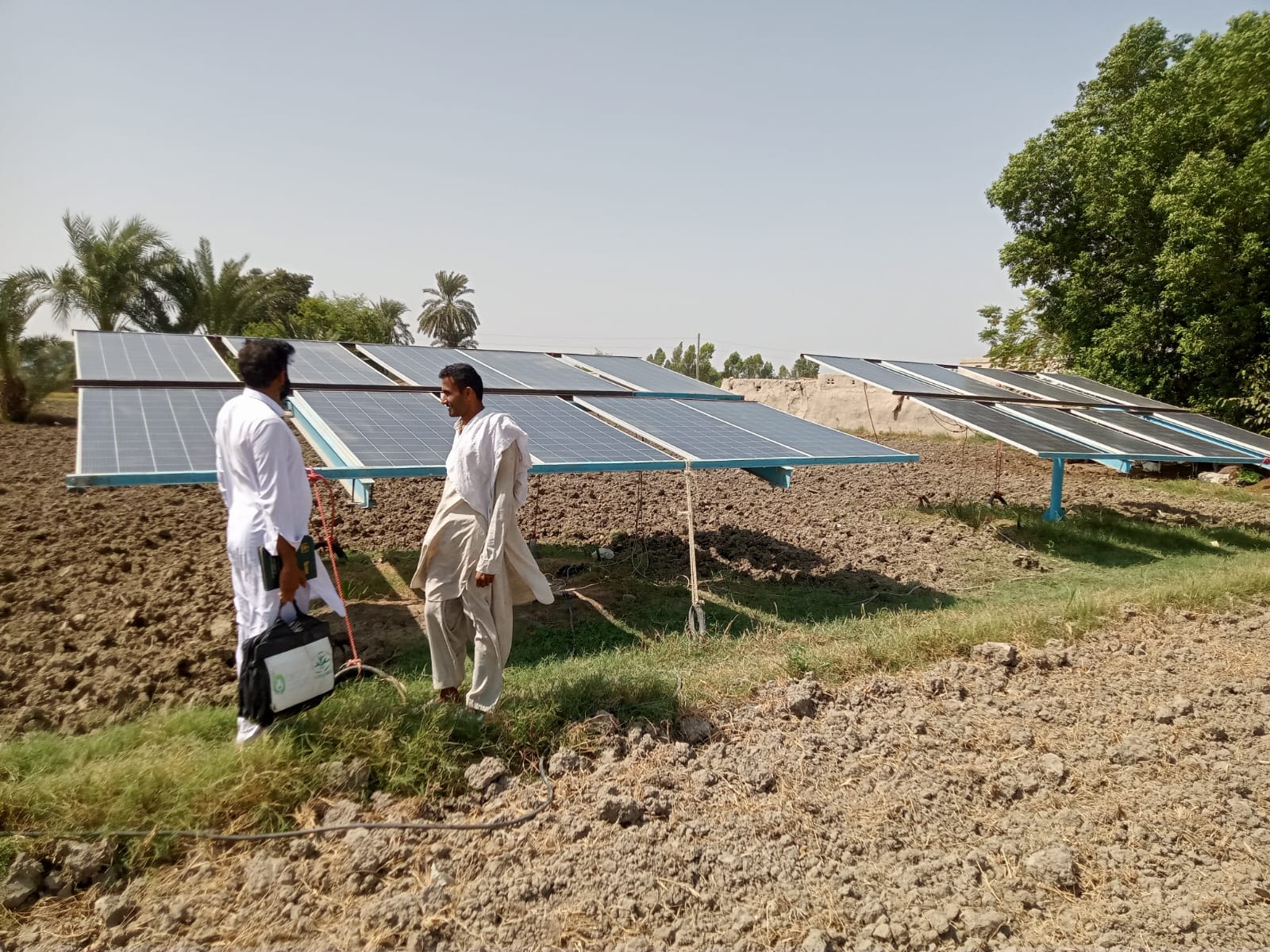
World Cotton Day, which will be celebrated globally this Saturday, October 7, is an annual celebration of the world’s most important natural fibre.
This year, in recognition of this special day, we want to shine the spotlight on some of the amazing work that our Better Cotton Farmers around the world are doing to drive sustainability improvements and introduce innovative farming practices.
From organic farming techniques in Turkey, to solar-powered irrigation in Pakistan, to water-saving practices in India, these stories are just a small snapshot of the initiatives being carried out by our 2.2 million licensed Better Cotton Farmers across the globe. To find out more, check out the three stories below.
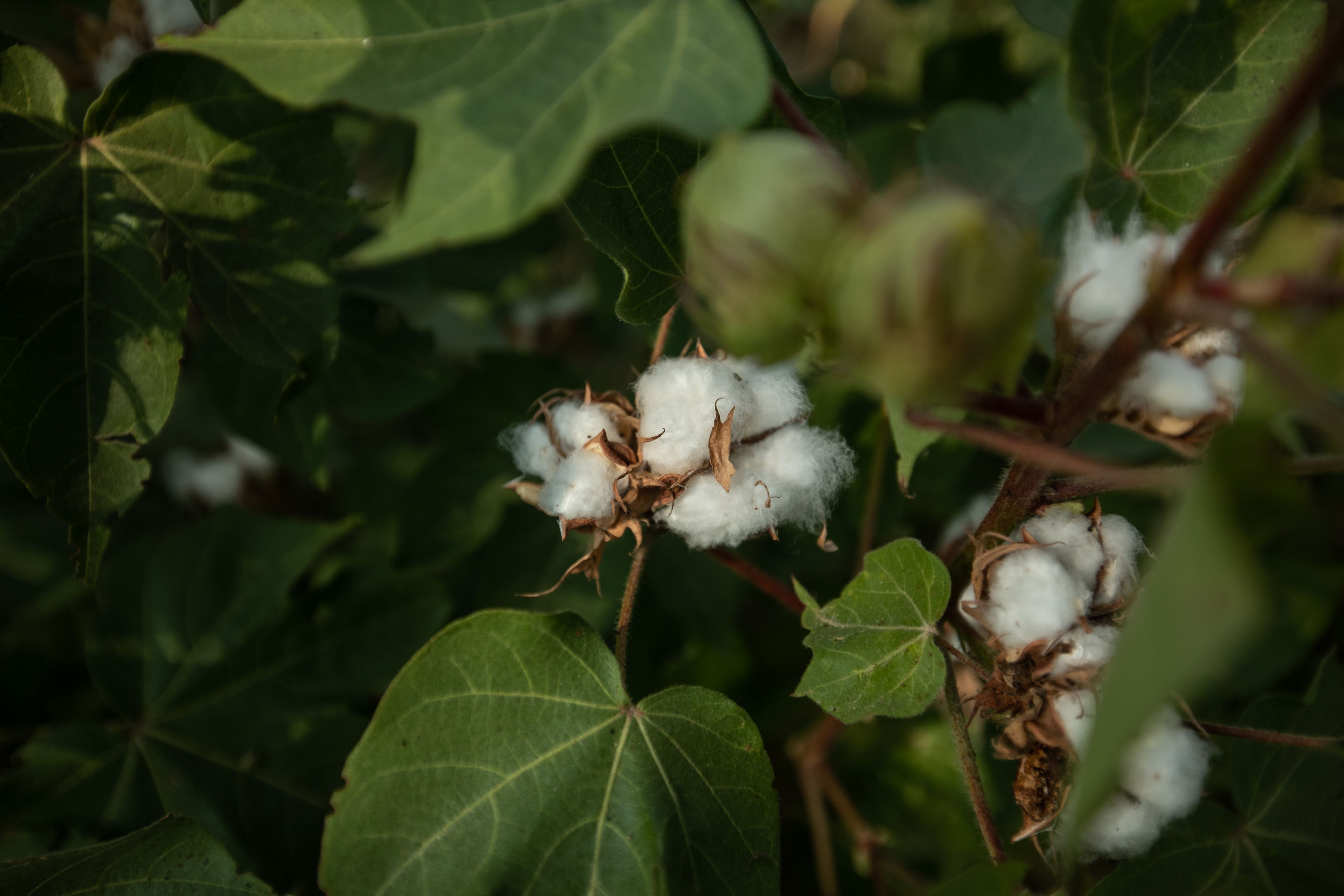
Photo Credit: Better Cotton/Khaula Jamil Location: Rahim Yar Khan, Punjab, Pakistan, 2019 Description: Cotton harvest.
Photo Credit: Better Cotton/Khaula Jamil Location: Rahim Yar Khan, Punjab, Pakistan, 2019 Description: Cotton harvest.
Shri Lakh Veer Singh Reduces Water Use With Innovative Nursery Technique
Rajasthan, India
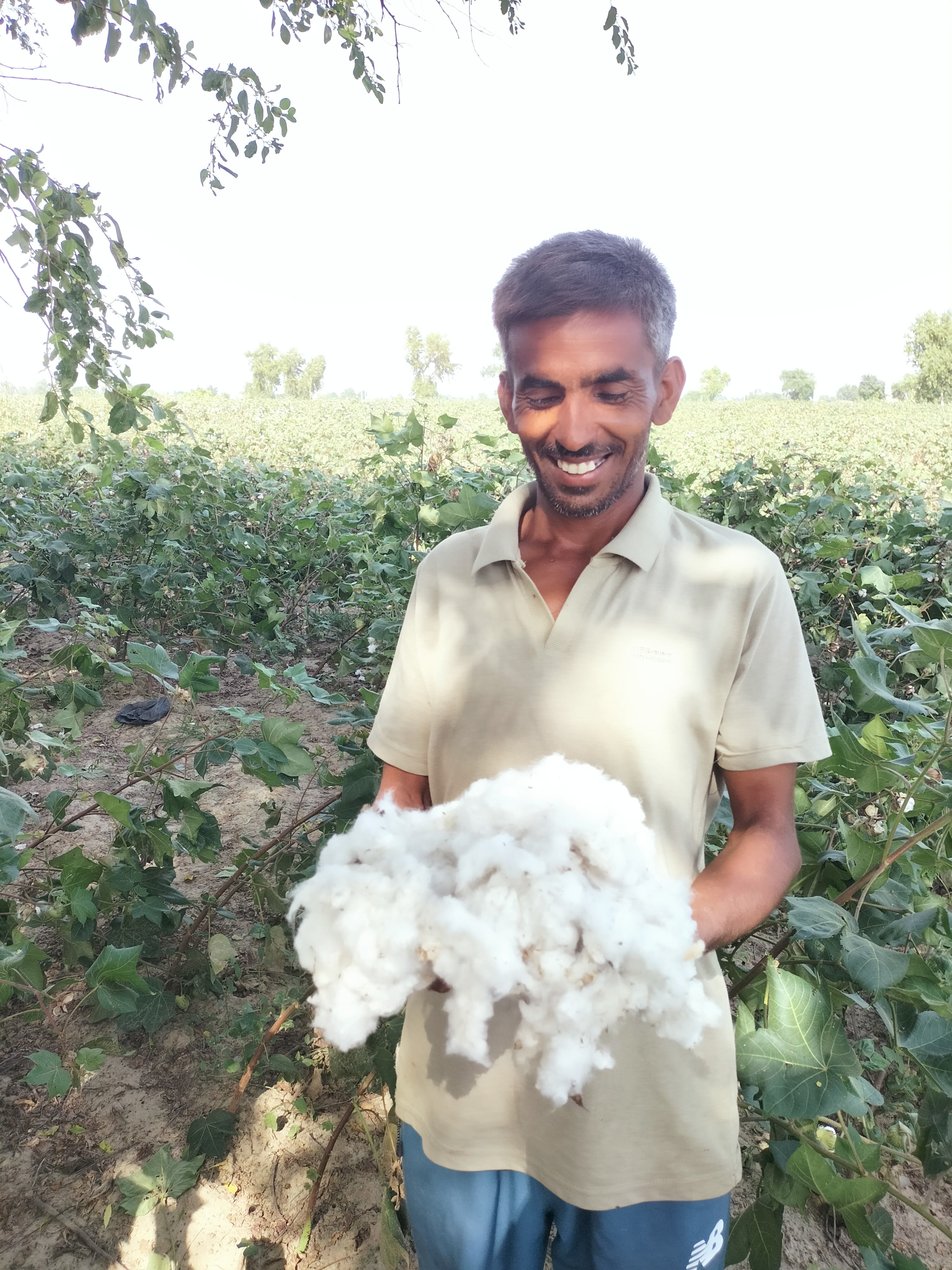
In Hanumangarh, in the Indian state of Rajasthan, the closure of irrigation channels over the past years has been creating challenges for cotton farmers who have no other means of irrigating their farms.
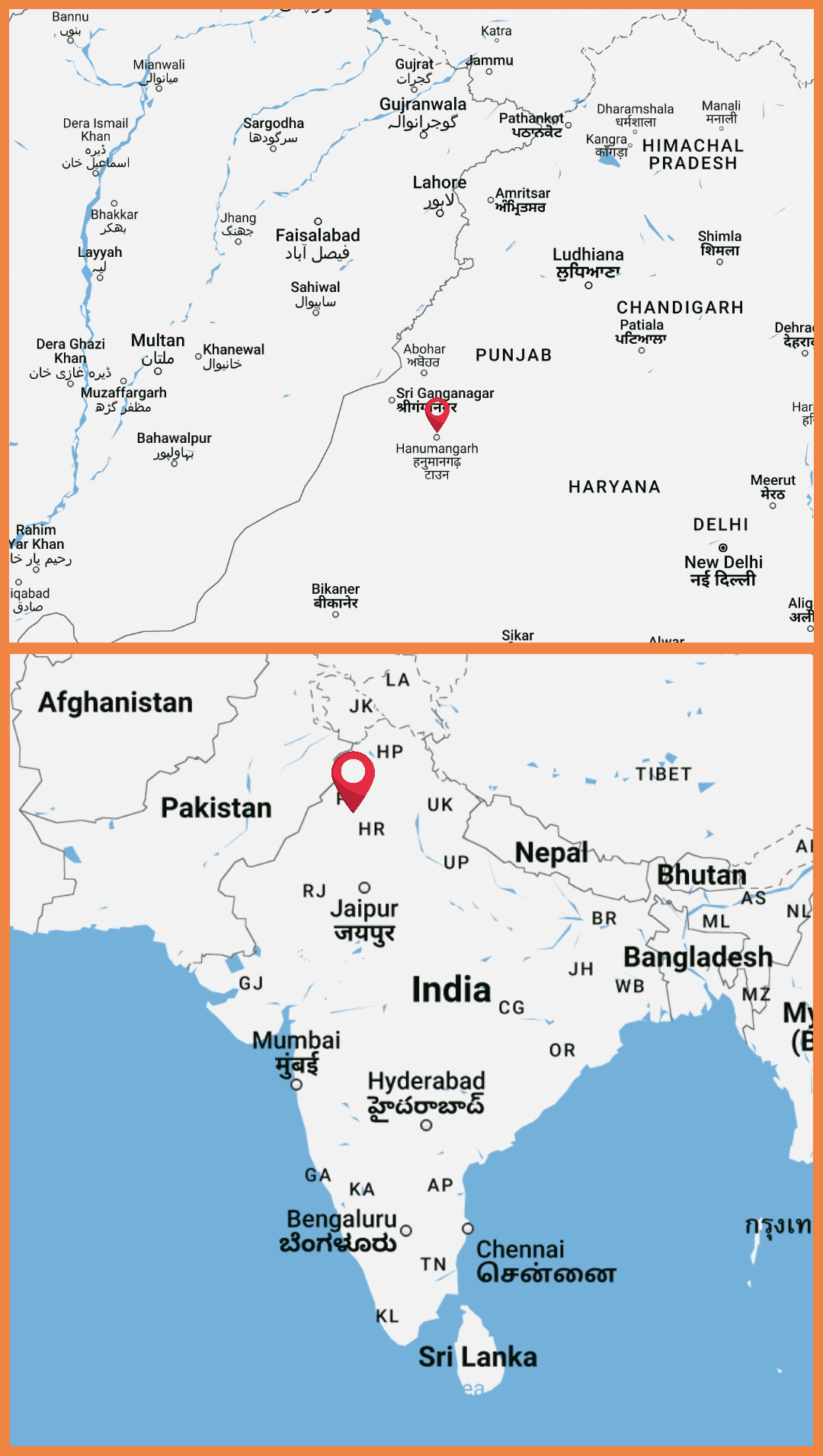
Looking to overcome this dilemma, the farmers reached out to ACF, Better Cotton’s Programme Partner in the area.
To assist the farmers in dealing with the reduction in the availability of water, ACF provided them with training, demonstrating how to use plastic bags to create ‘cotton nurseries’.
This technique, in which small bags are filled with soil and some well-rotted manure, boosts water-efficiency and minimises the amount of water that each plant requires.
One Better Cotton farmer, Shri Lakh Veer Singh, tested this practice, planting about 2,000 seeds in his bags. After 45 days, the plants were transplanted into his field.
Lakh Veer was able to save a large amount of water, watering for 60 days rather than the usual 45. Normally he yields about 450-500kg of cotton from one quarter of a hectare with delayed sowing. This year, he was able to grow 800kg per quarter-hectare.
Lakh Veer found this method of cotton growing very beneficial, and after the cotton harvest, many farmers approached him to learn from his experience. He is very grateful to the ACF team for their valuable support.
Teslime Çakmak Boosts Soil Health In Organic Field Trial
Izmir, Turkey
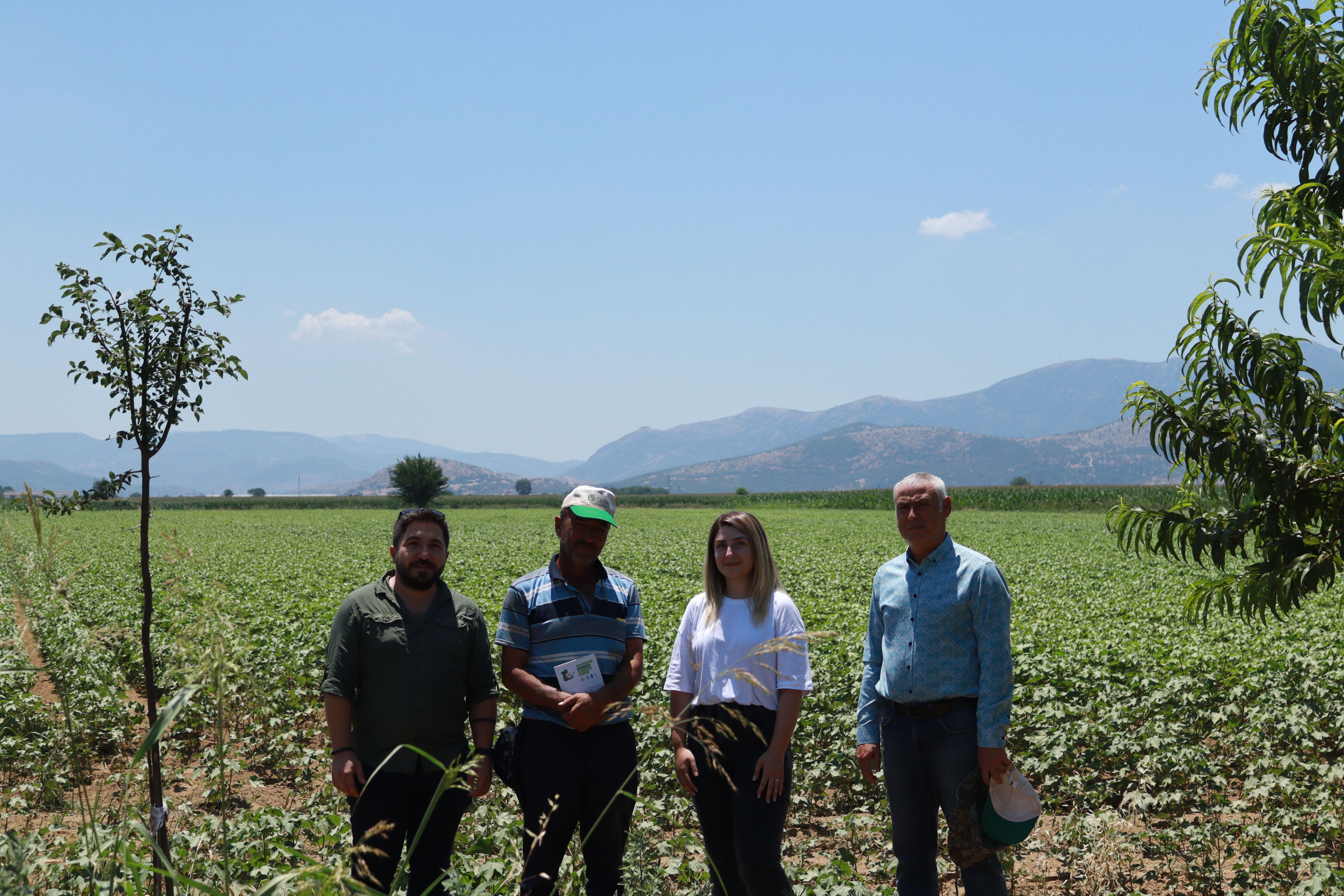
Teslime Çakmak, who has been a Better Cotton Farmer since 2019, is 70 and lives in the Torbalı district of Izmir with her family. Her son, Cüneyt Çakmak, takes care of the day-to-day management of the farm.
Cotton is the most important crop for her family, but they also cultivate maize and vetch for use as animal fodder for their livestock.
After receiving soil health training from one of the field facilitators from Canbel, Better Cotton’s Programme Partner in the region, Teslime’s family volunteered to participate in an organic field trial which had been planned by Canbel.
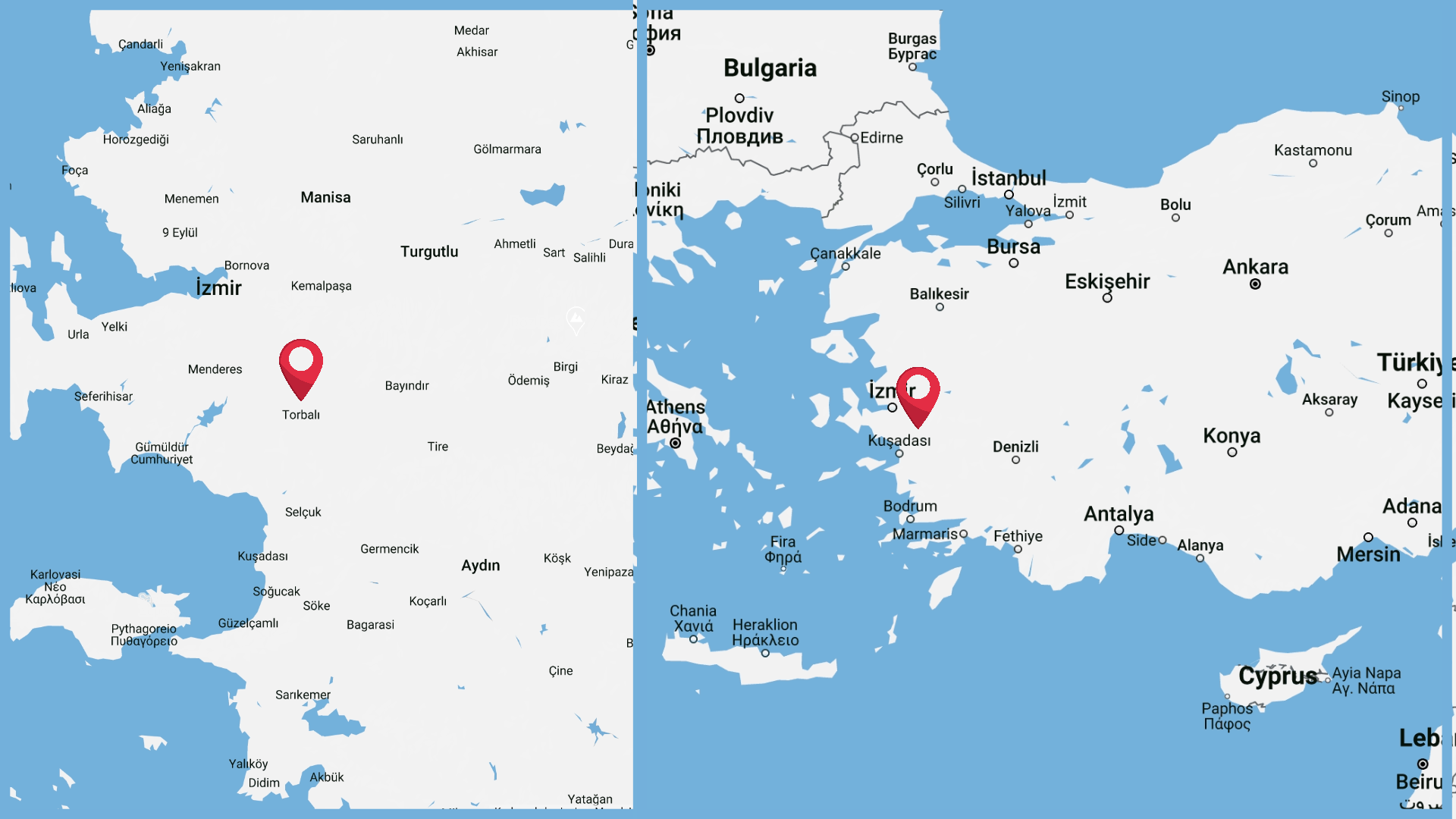
Soil samples were taken from Teslime’s farm, which showed that the amount of organic matter in their soil prior to the trial was very low. To test the effectiveness of organic fertiliser and cover cropping in improving this, the farm’s cotton plots were therefore divided into three parts for the trial. The first part was used as a control plot, the second used organic fertiliser, and the third used both organic fertiliser and vetch as a cover crop.
The results of the trial suggested that these practices that were used contributed to positive improvements in the soil in terms of yield and organic matter
Teslime and her family members all had smiling faces after the harvest. This project and its results were followed with interest by other cotton producers in the village.
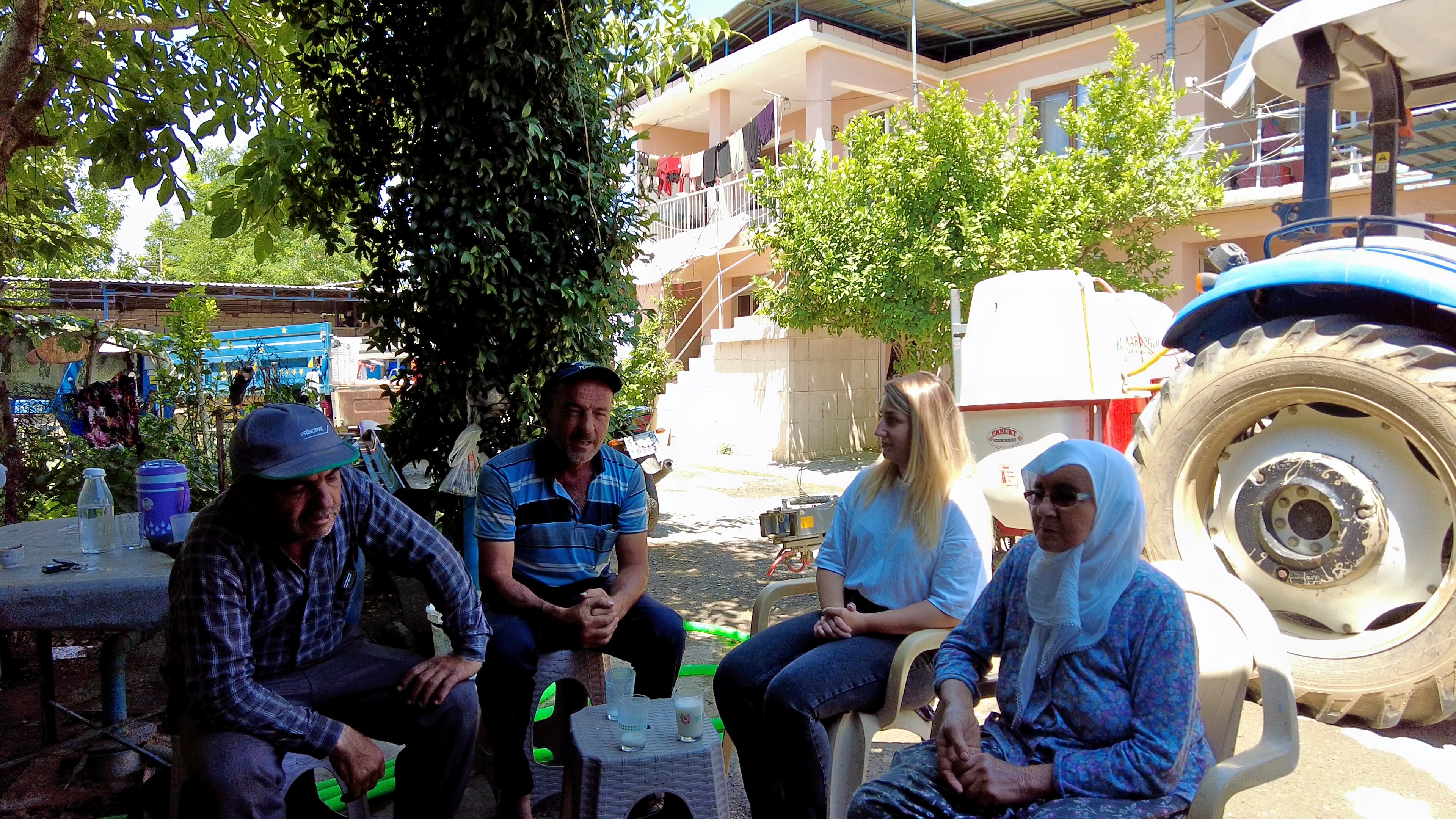
Photo credit: Canbel. Description: Teslime Çakmak with her two sons who look after the cotton fields
Photo credit: Canbel. Description: Teslime Çakmak with her two sons who look after the cotton fields
Muhammad Nasir Reduces GHG Emissions Through Solar Irrigation System
Rajanpur, Pakistan
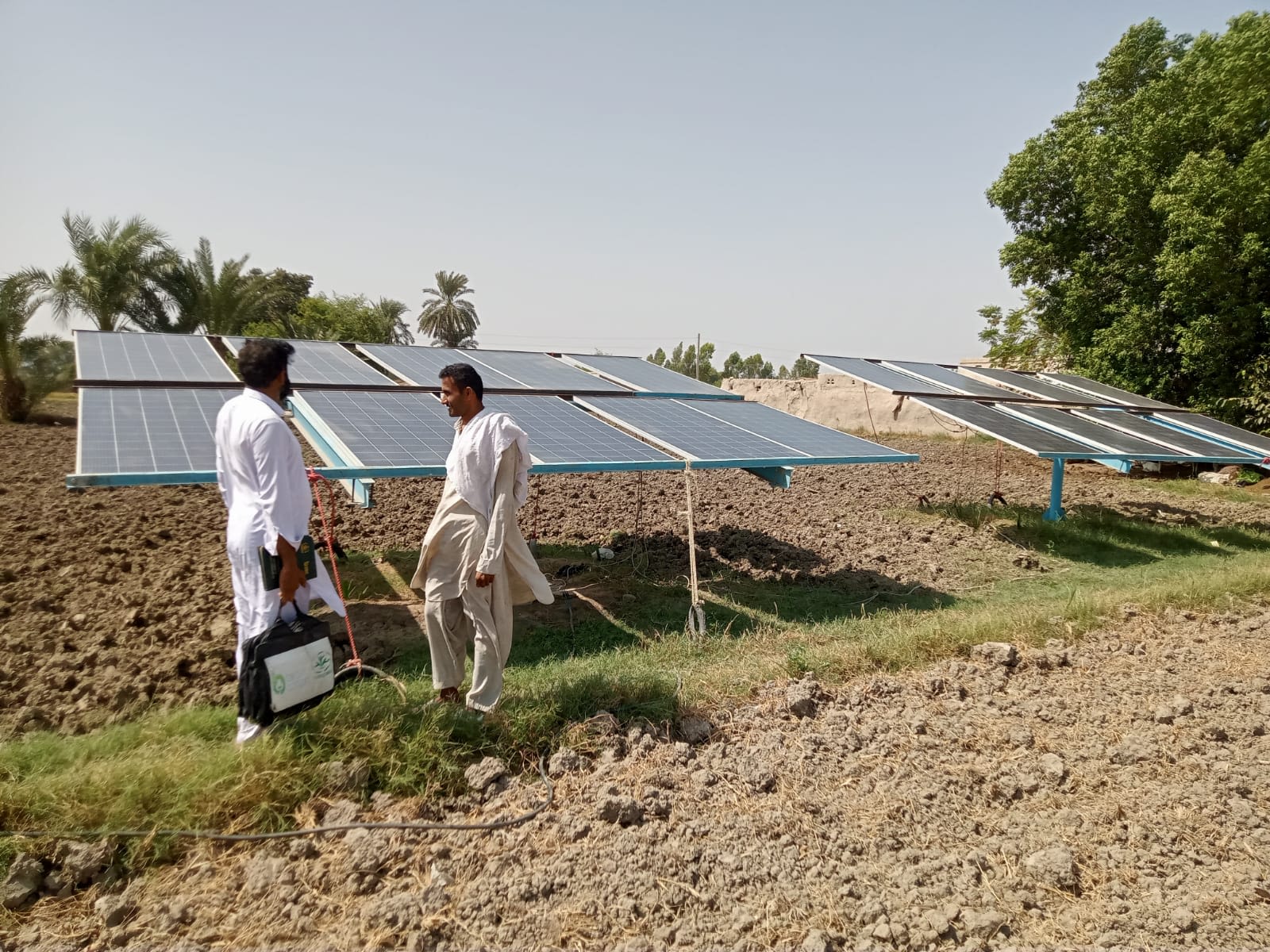
Based in Basti Dareshak, in the Rajanpur district of Pakistan, Muhammad Nasir is a registered Better Cotton Farmer who has always practised conventional methods of farming to grow his cotton crops.
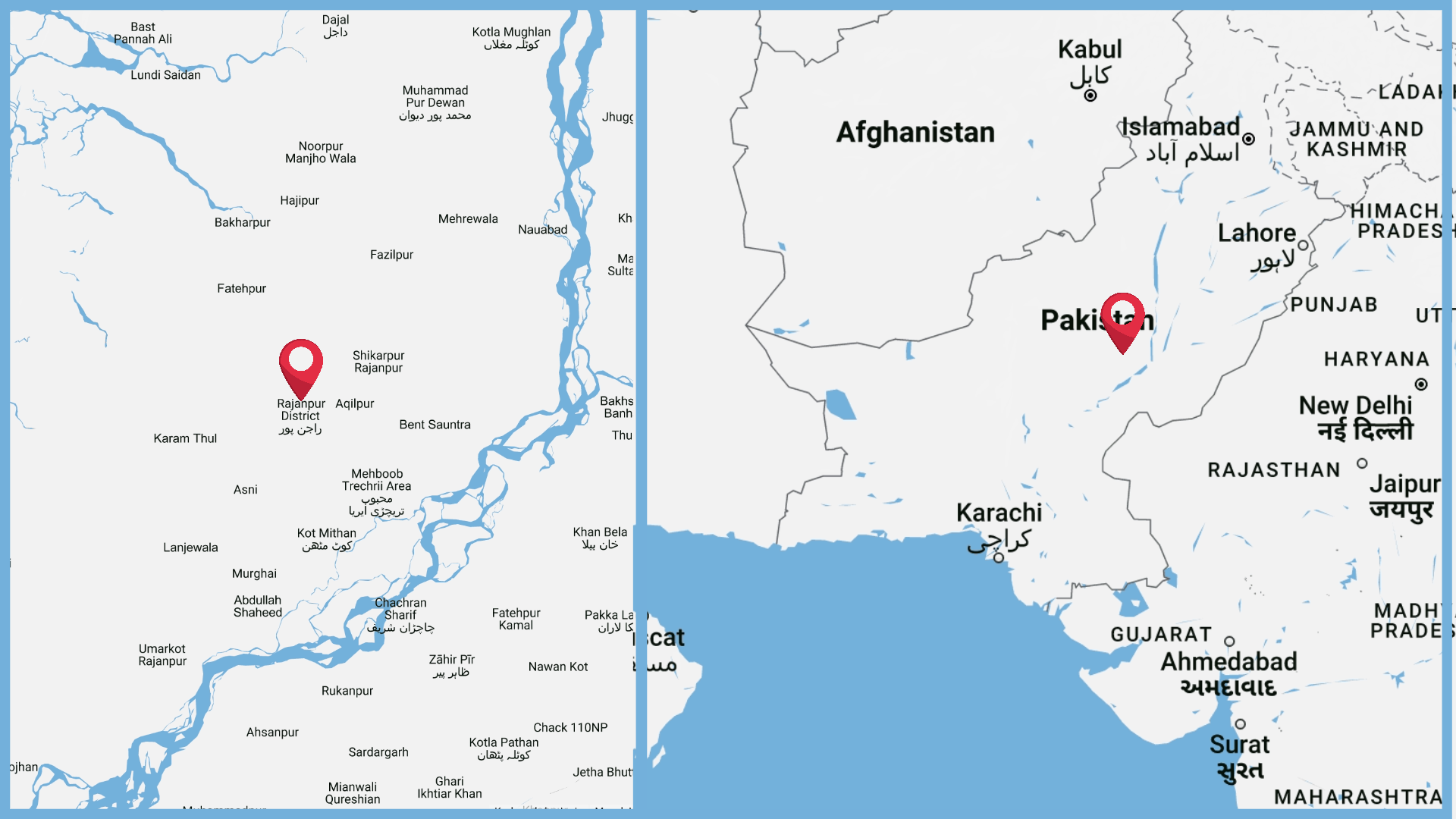
However, after Muhammad’s local area was hit with water scarcity issues during the sowing season, he faced losses in his yield when it came time to harvest his cotton crop.
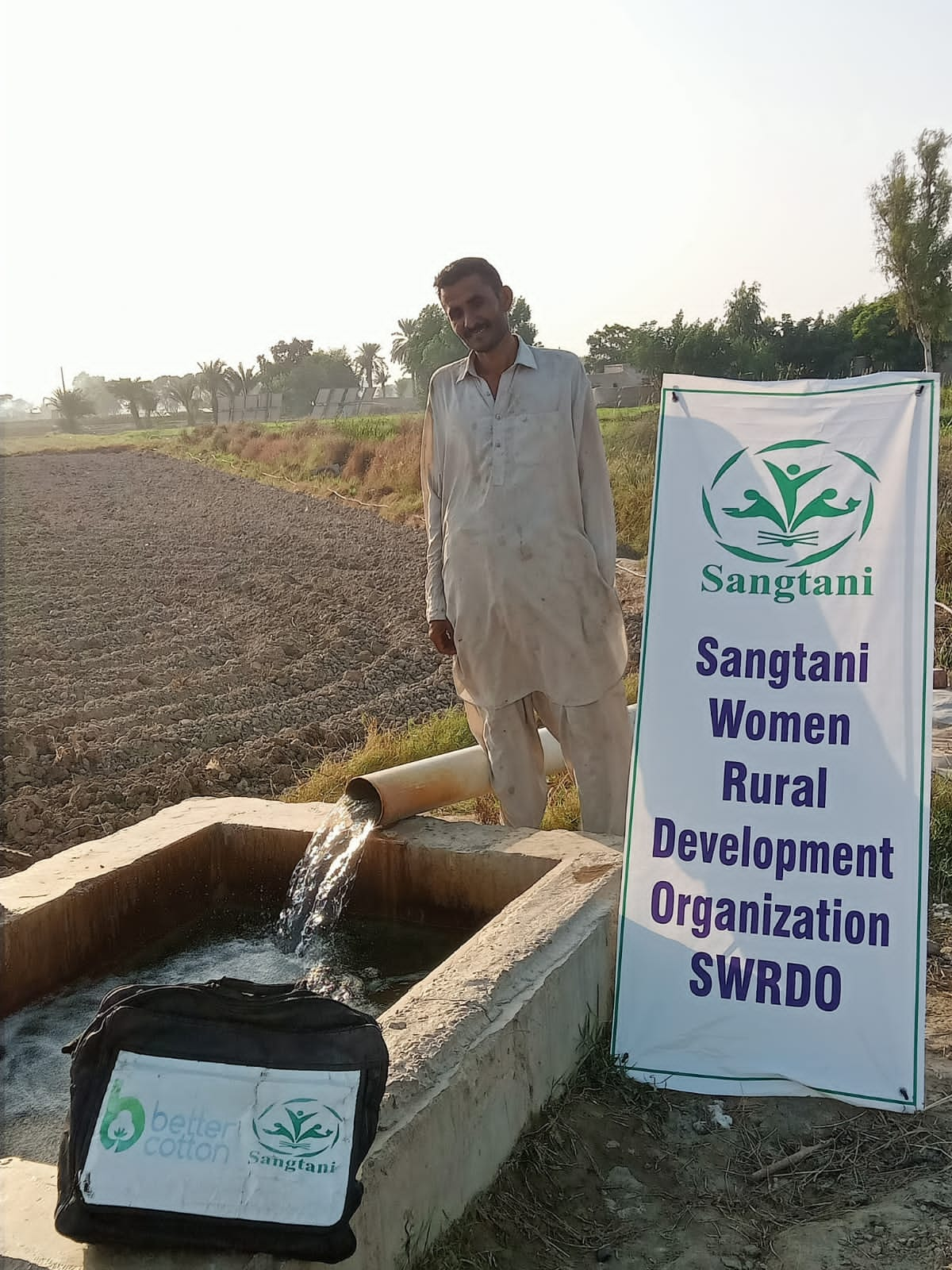
Photo credit: SWRDO
Photo credit: SWRDO
In order to overcome this challenge, having been inspired by his visits to nearby demonstration plots, Muhammad therefore took the decision to install a solar irrigation system on his farm. This system uses solar energy to pump water to plants, replacing the previous motor which ran on fossil fuels.
Thanks to this new solar-powered system, he not only minimised crop management expenses but also enhanced crop health, reduced carbon emissions and paved the way towards more effective pest management.
As a result of this availability of water for good crop governance, Muhammad was also able to increase his farming area from 2.42 hectares in 2021 to 4.04 hectares in 2022.
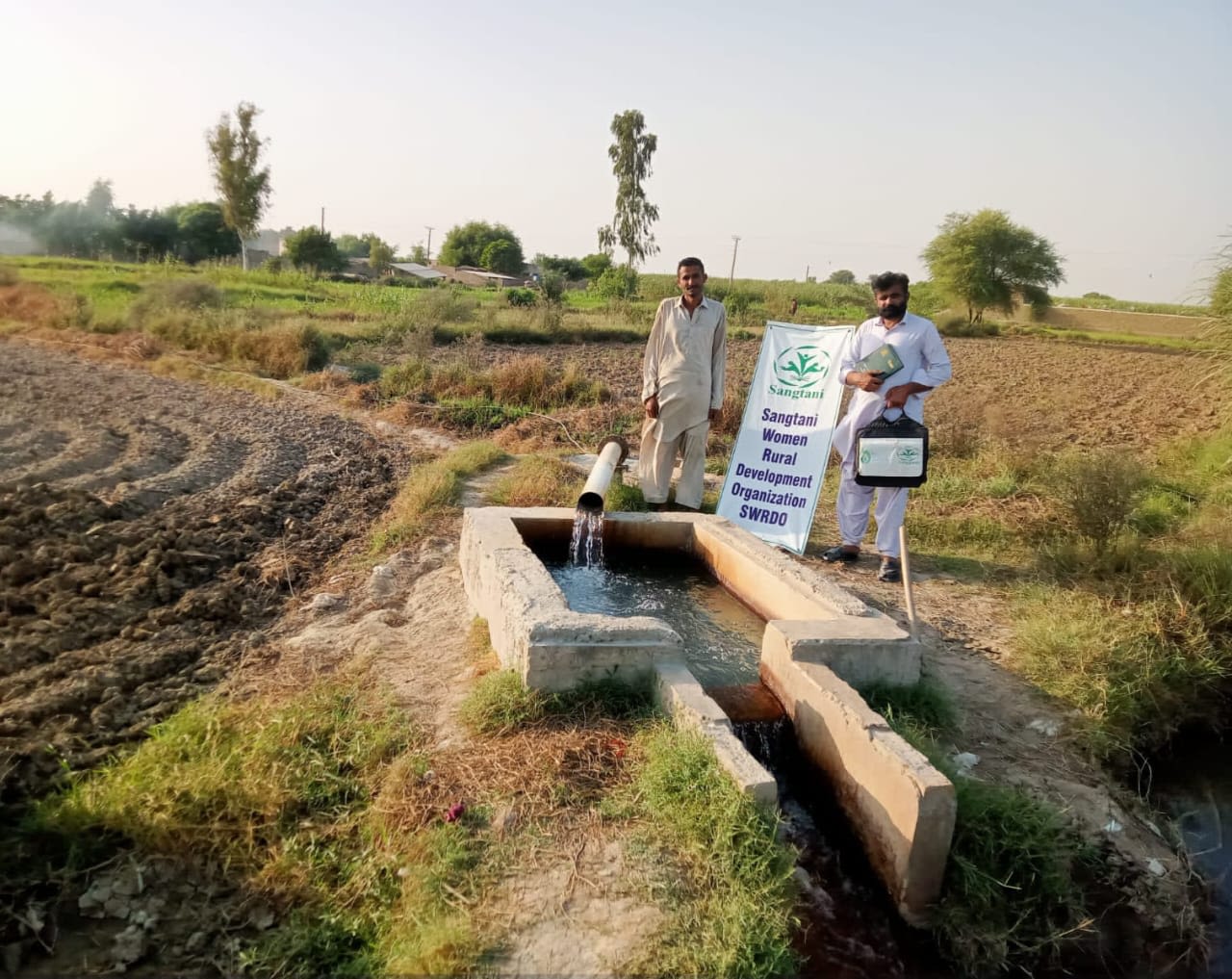
Photo credit: SWRDO
Photo credit: SWRDO